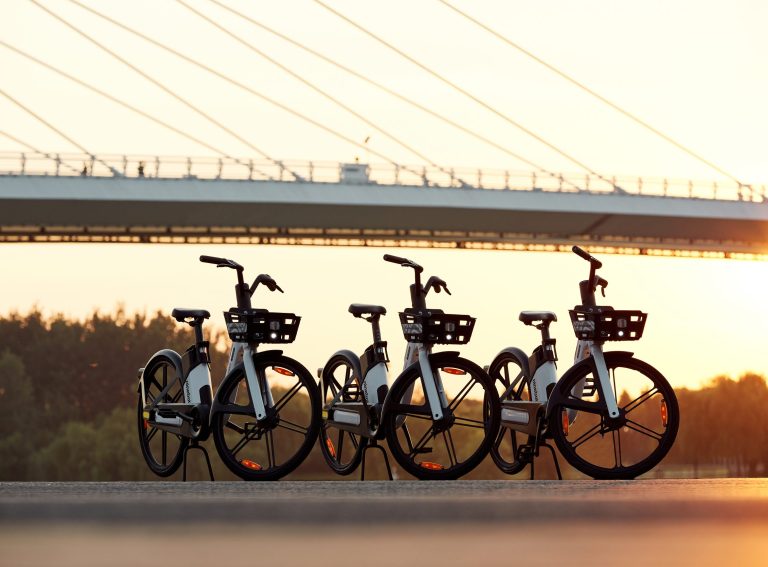Author: Keith Jones, Cityshuttle CEO
Since Cityshuttle’s inception in 2019, I have watched in awe as the global last mile delivery market has flourished. I have seen incredible ingenuity unravel before my eyes from both new and established brands, and the evolution of the UK market alone continues to excite me. However, as much as I revel at the expansion in the UK, the protocol surrounding the safety of these vehicles remains of real concern for me. When will a formal safety framework come to fruition? Or, what unfortunate incident will take place to force a late call to action? A recent situation experienced by one of my employees has prompted my call to address this issue, and I believe we need to create an established set of regulatory standards within the UK market.
Clocking 25 mph!
Just two weeks ago, our Head of Maintenance David, an avid cyclist of 25 years, arrived at work to share that whilst riding on his pushbike back to West London the previous evening, his speedometer was clocking 25mph. What prompted him to record his speed? A pedal-assisted electric delivery vehicle pulled up alongside him, continuing to match his speed for some time on his journey home. Now, anyone involved in the industry knows that this market is ‘light’ when it comes to regulation but why is any pedal-assisted vehicle able to travel at this speed when the law in the UK clearly states 15.5mph (25kph) for these vehicles? It won’t be long before someone gets hurt. And when that happens – it will be clamp-down time. I anticipate a shock-policy-reaction, consisting of stringent regulations imposed on the whole of the local market, leaving some manufacturers’ positions untenable. Sounds dramatic, but depending on the severity of the situation, there may be no time to adjust to new policy and it could stunt growth for the whole market.
The answer is cargo bikes, but weights a concern
One of the most popular use cases for a micromobility vehicle is for providing last-mile logistics services, and it’s clear to see why. A recent study by climate charity Possible found that cargo bikes can deliver goods in London on average 1.61 times faster than vans, and over the 98-day duration of the survey, saved a total of 3,896kg of carbon emissions compared to vans (1). But as demands for these services grow, with the UK e-bike market expected to rise by around 8.45% between 2020 and 2027 (CAGR), operators can’t hire staff fast enough. This means we now have young drivers handling a vehicle with (in some cases) up to 400+ kg in gross weight, with limited training and safety components included within the vehicle. Coupled with the fact that they’re driving these vehicles at 25 mph and that’s a recipe for disaster. This then begs the following questions – what systems should be mandatory to ensure operators are compliant? What supporting safety features should be included in every pedal-assisted electric vehicle to support their safety (i.e. specification of brakes and so on)? And are we going to pre-empt the problems we may face within the UK and act sooner, or rather face the unfortunate consequences later?
Green policy u-turn
Furthermore, there’s the government’s attitude towards road safety and how this may apply to our industry. Rishi Sunak’s u-turn on the “20’s plenty campaign” seriously concerns me, particularly as micromobility safety standards need to absolutely become a talking point. And when it does – will the government decide on taking a lax approach, as they seem to have done so in this regard, or will they seriously consider the measures that need to be in place for businesses and the public to share the streets in a safe and comfortable manner? I’d say it’s down to our community to get the conversation started now.
Cityshuttles response
For Cityshuttle, I decided to implement a number of safety features into our three e-shuttle vehicles from the ground up. Every bike that rolls out of our facility is fitted as standard with an AI telematics and camera system (enabling the monitoring of cargo in transit and prompts the drivers of any potential dangers in real time); ABS brakes; we conduct load-testing and wind-testing; carry a First-Aid Kit and a Defibrillator; and to top it all off we’re going to run each bike through an eight-week industry-renowned testing programme in Germany to completely stress-test the vehicle. I’m adamant this will benefit our customers and those in and around our vehicles. What’s more we are in the process of creating a full driver training programme and training centre in London to ensure any vehicle we manufacture and operate either in-house or by an operator is being driven by a competent and fully-trained driver.


Now I’m not blind to the fact that a liberal, unregulated market allows for innovation, growth and change in an industry’s early days, but it’s time to recognise that this market is no longer in its infancy. We have both large and small players rolling-out vehicles in the thousands, and in the next few years pedal-assisted vehicles will become an everyday part of life for both consumer and commercial services. Here in the UK we are a close-knit industry, and now is the time to come together and create a more formal forum for discussing safety as we grow and become more interwoven with our local transport infrastructure. I know conversations are already taking place, but let’s really drive the discourse forwards, and create a safe environment built on solid standards that benefits businesses and people across the UK.











